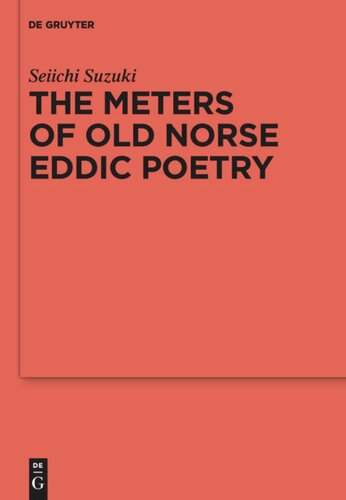

Most ebook files are in PDF format, so you can easily read them using various software such as Foxit Reader or directly on the Google Chrome browser.
Some ebook files are released by publishers in other formats such as .awz, .mobi, .epub, .fb2, etc. You may need to install specific software to read these formats on mobile/PC, such as Calibre.
Please read the tutorial at this link: https://ebookbell.com/faq
We offer FREE conversion to the popular formats you request; however, this may take some time. Therefore, right after payment, please email us, and we will try to provide the service as quickly as possible.
For some exceptional file formats or broken links (if any), please refrain from opening any disputes. Instead, email us first, and we will try to assist within a maximum of 6 hours.
EbookBell Team

4.7
46 reviewsThis book is a formal and functional study of the three distinct meters of Old Norse eddic poetry, fornyrðislag, málaháttr, and ljóðaháttr. Itprovides a systematic account of these archaic meters, both synchronic and diachronic, and from a comparative Germanic perspective; particularly concerned with Norse innovations in metrical practice, Suzukiexplores how and why the three meters were shaped in West Scandinavia through divergent reorganization of the Common Germanic metrical system. The bookconstitutes the first comprehensive work on the meters of Old Norse eddic poetry in a single coherent framework; with thorough data presentation, detailed philological analysis, and sophisticated linguistic explanation, the book will be of enormous interest to Old Germanic philologists/linguists, medievalists, as well as metrists of all persuasions. A strong methodological advantage of this work is the extensive use of inferential statistical techniques for giving empirical support to specific analyses and claims being adduced. Another strength is a cognitive dimension, a (re)construction of a prototype-based model of the metrical system and its overall characterization as an integral part of the poetic knowledge that governed eddic poets' verse-making technique in general.